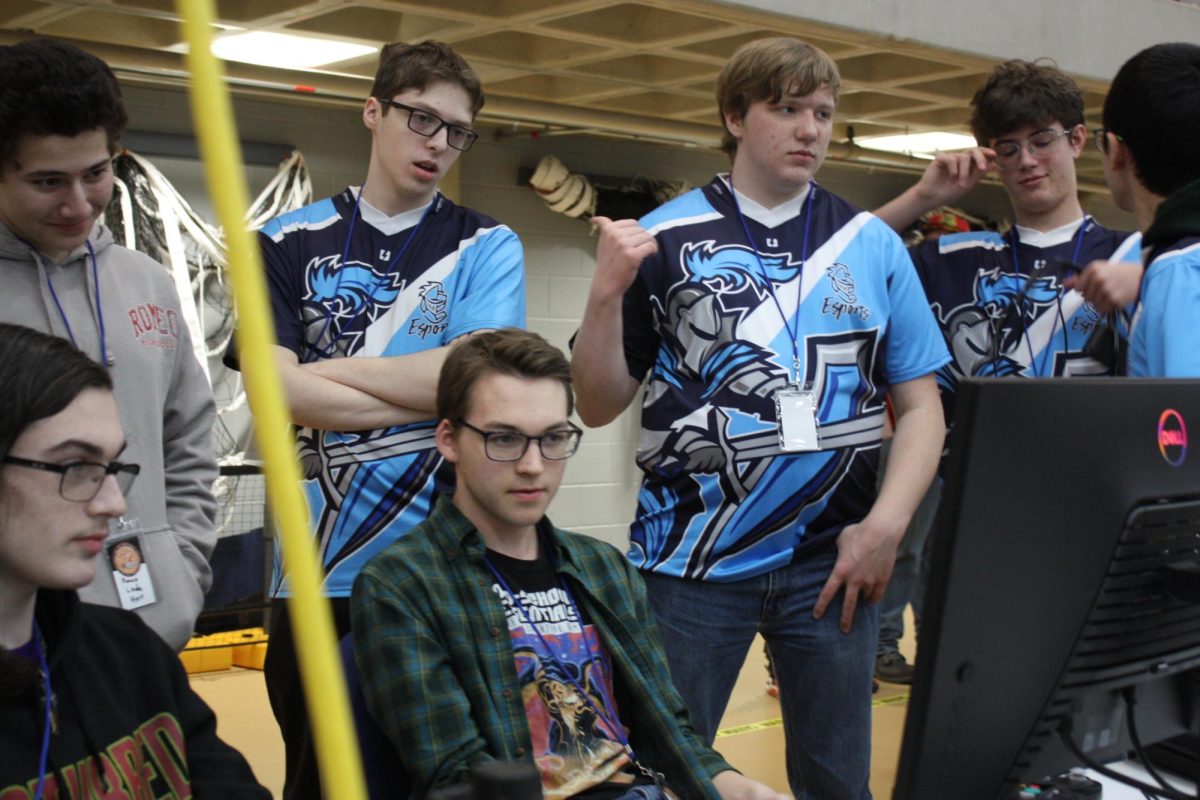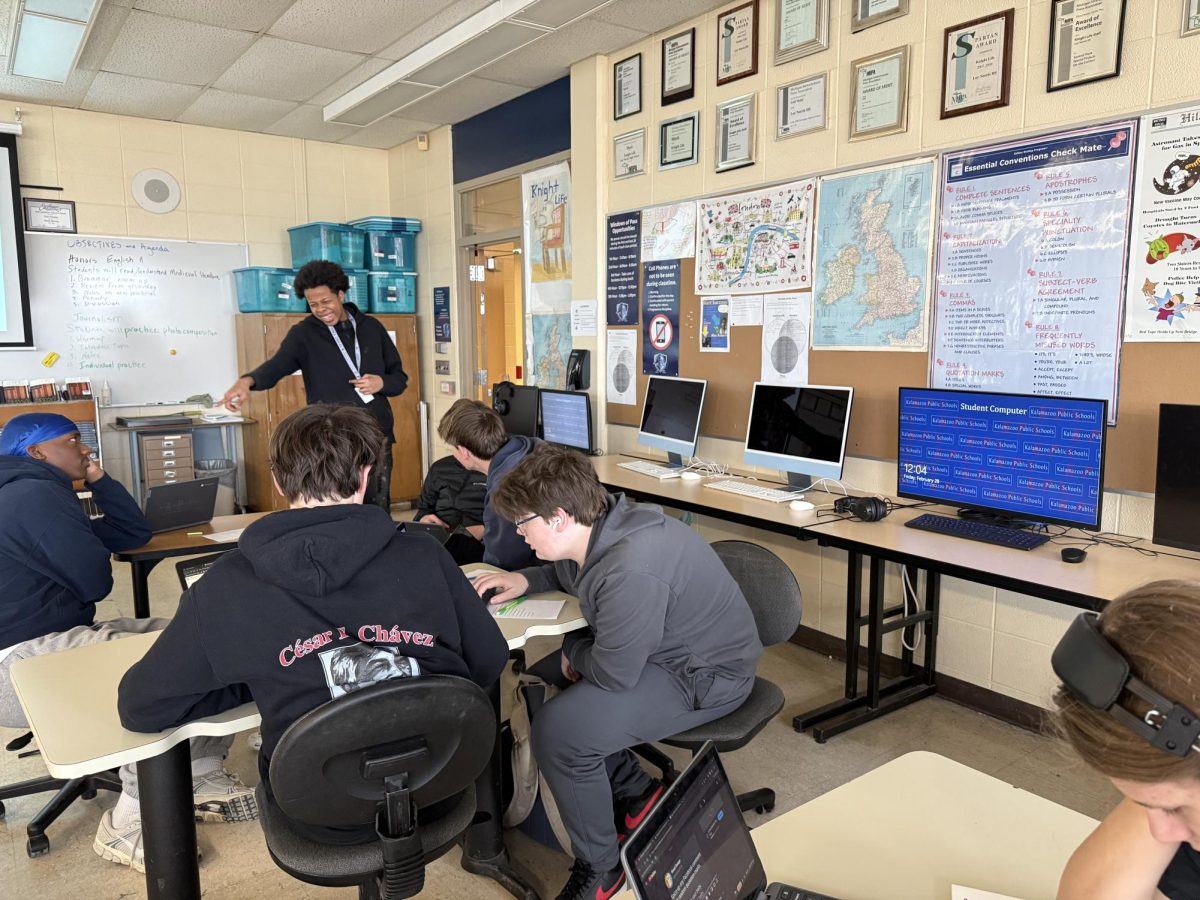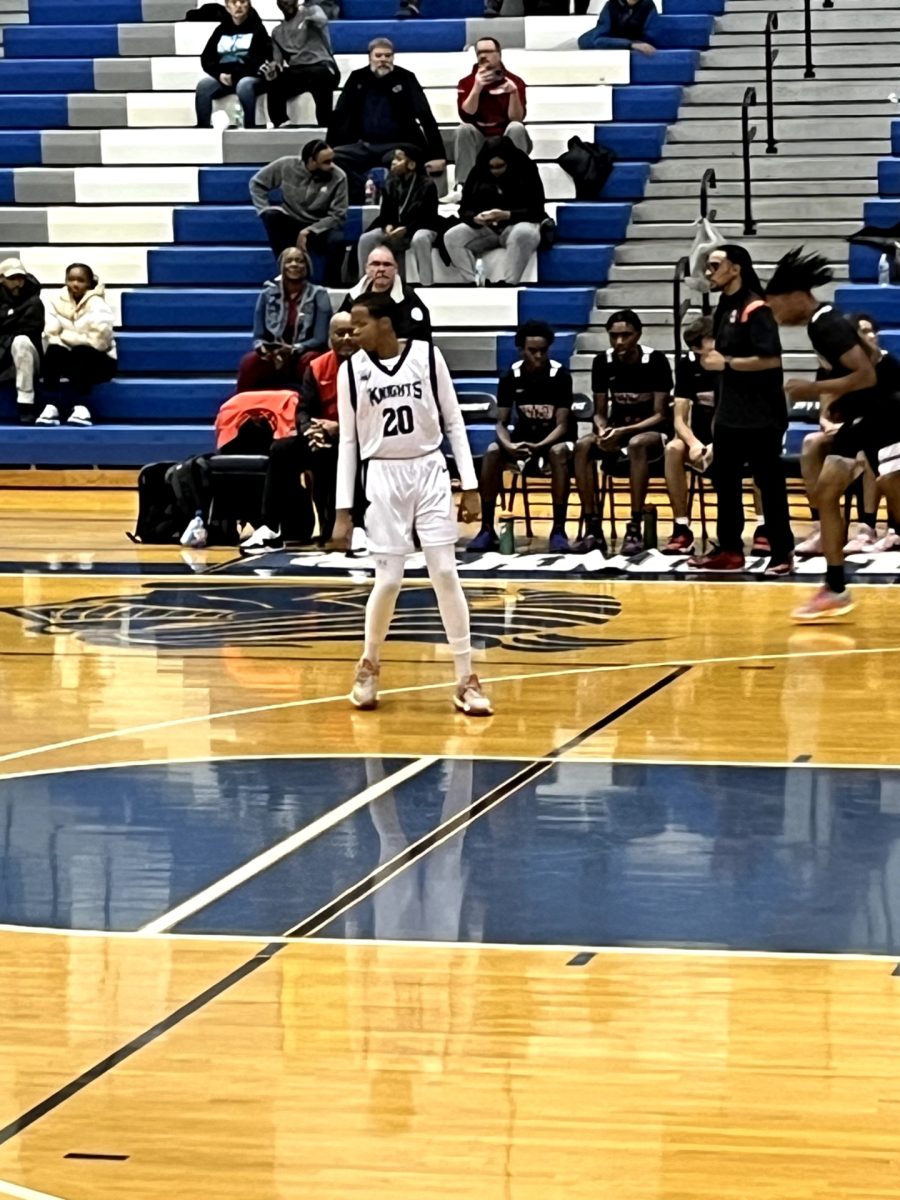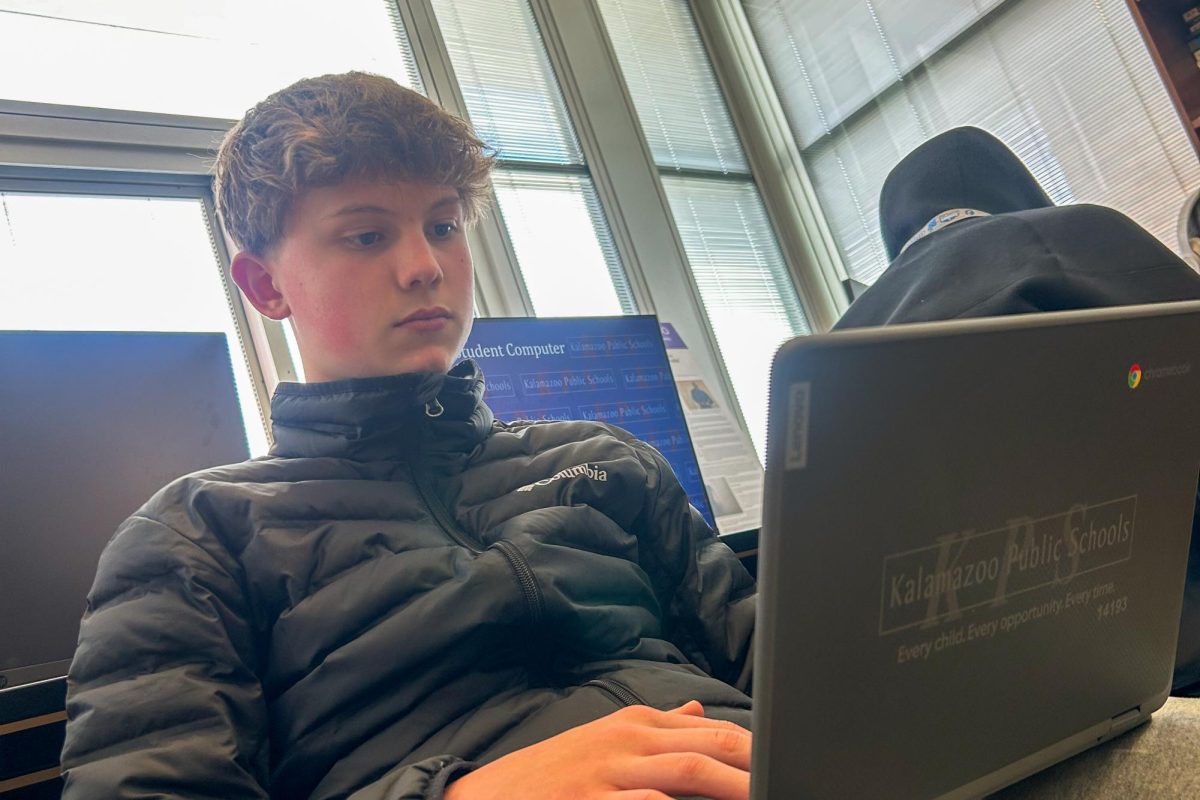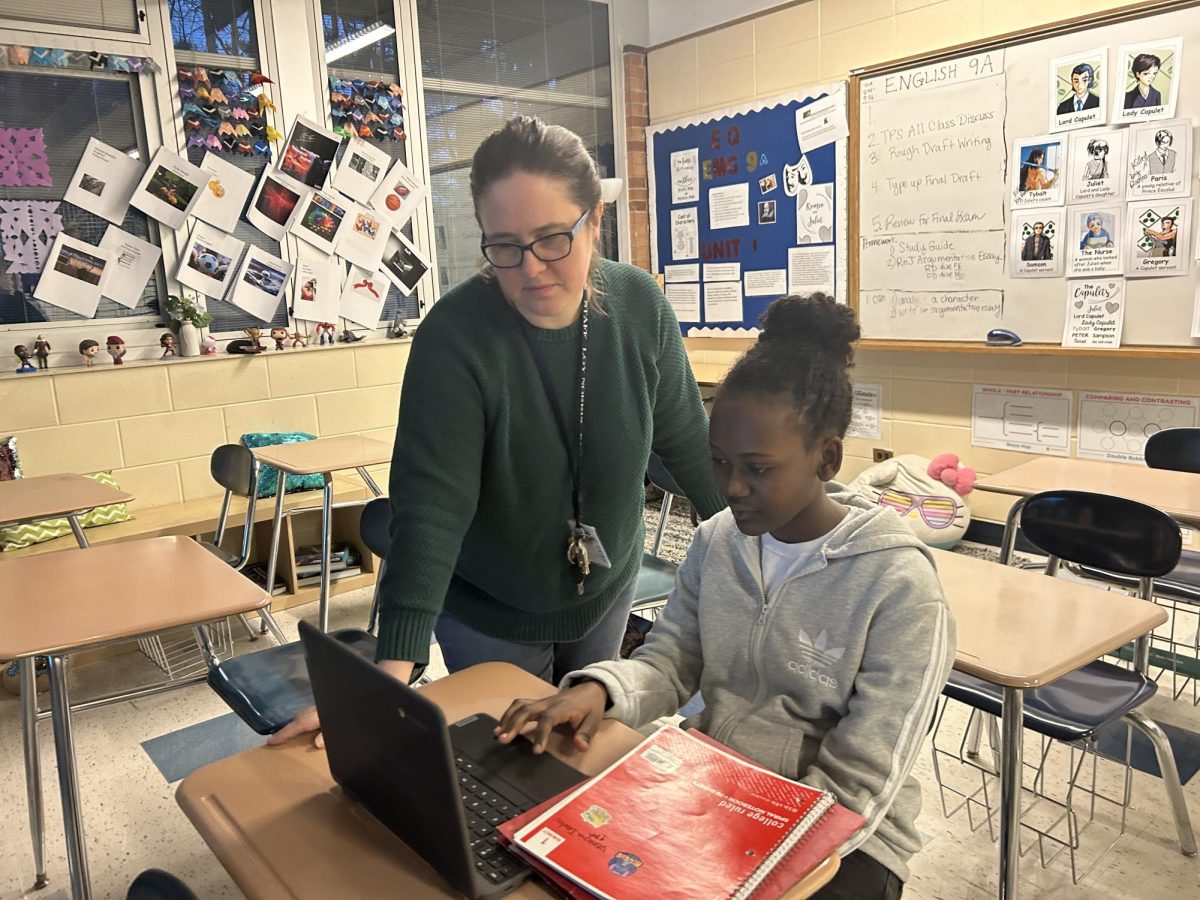Overlooked among our stars in athletics, band and cheer, two small teams have dedicated themselves to improving their craft over the past year to make a name for themselves at state competitions.
The eight students who make up the “Super Smash Bros. Ultimate” esports teams value mutual respect and diligence just as much as any athlete, but they do not play basketball: they play a video game that involves making two different Nintendo characters fight.
On Dec. 9, 2023, the Blue and Silver “Super Smash Bros. Ultimate” teams represented Loy Norrix at the 2023 Michigan High School Esports Federation (MiHSEF) state finals, a gathering of the best high school esports teams in the state.
The MiHSEF is a non-profit league that hosts matches between high school esports teams in Michigan, eventually culminating in a final tournament each season. Teams apply to compete on a per-season basis, and dozens of high schools from all across the state have previously competed in games such as “Super Smash Bros. Ultimate,” “League of Legends” and “Overwatch.”
The Smash teams concluded the autumn esports season on a high note, with the Blue team beating two teams before being eliminated and the Silver team advancing all the way to semifinals before an unfortunate streak of defeats first pushed them into the loser’s bracket before resulting in their elimination.
Despite their impressive performance over the past season, the esports program’s struggle for recognition and respect in the wider school community is far from over.
“I think it [esports] is viewed very negatively, and in an ‘oh, that’s kind of stupid, why are we doing this’ kind of perspective,” said junior and Blue team member Liam Crookston. “I know Norrix is, at least school-wide, known for our women’s swimming and diving and for our bowling team, and it feels like even though we’re good, we don’t really get talked about as much.”
To address this, the esports program has been working to put itself further into the public eye. Some may have noticed the custom jerseys on team members around the school or may have attended their Pokemon tournament this past November.
Some members, however, worry that their efforts have not done enough to increase the reach of the esports program. This includes junior Brayton Garza, another Blue team member who feared that things like the Pokemon tournament have not given esports the reputation that he and the rest of the club have been seeking.
“The way it’s shown can be a little misleading… some people get the wrong idea of what it actually is,” said Garza. “They don’t know that we play in a league and go to state competitions.”
Despite the common reputation of video games as a fun, casual hobby, competitive gaming can be taken very seriously. The “Super Smash Bros.” players who competed at the MiHSEF finals approach their game like an athlete approaches their sport: applying skill and strategy, constantly learning and constantly reading their opponents in search of the opportunity that will lead them to glorious victory.
As junior Bjorn Nelson, captain of the Blue team, described it, competitive Smash requires deep, complex thinking and well-developed strategy and skill.
“It just keeps getting deeper and deeper: there’s really no depth that you can’t go further down from because again, you are playing with another human being, which is the really important thing,” said Nelson. “There are mind games in and outside of the game happening.”
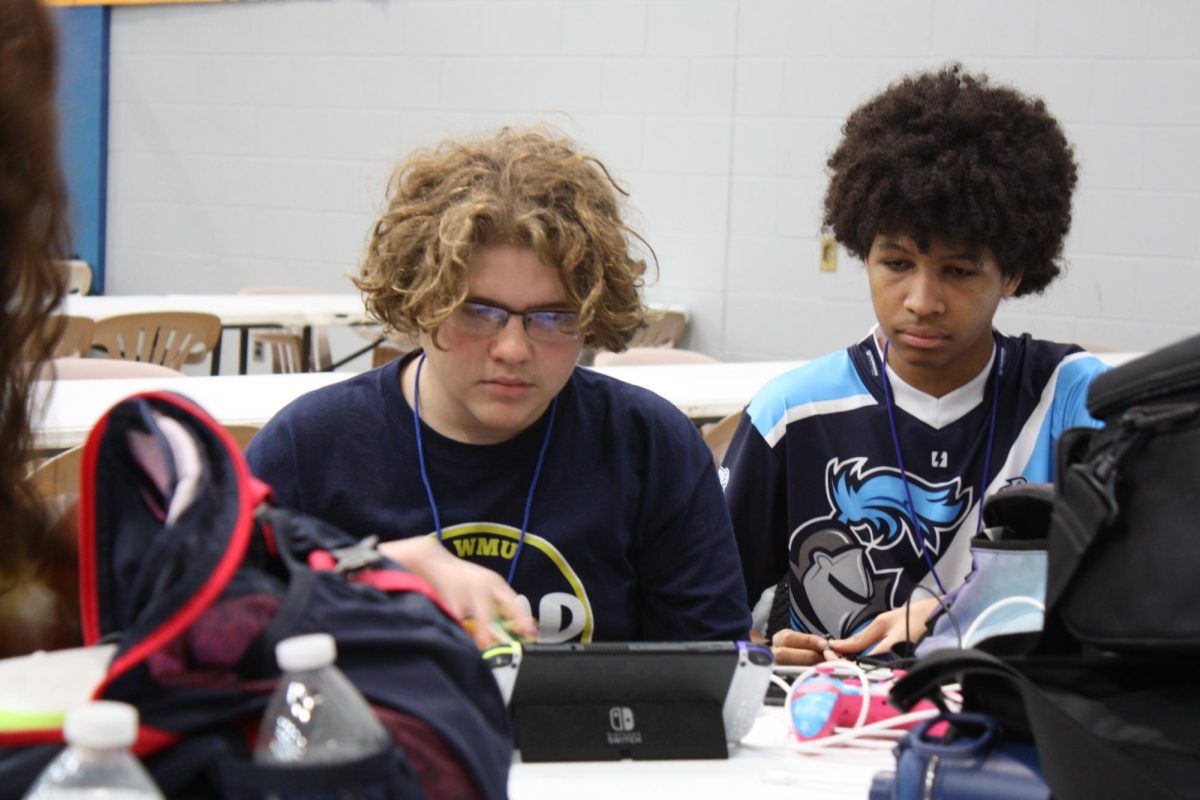
Esports also carry a certain sense of camaraderie and inter-team respect about them. A common practice at Smash tournaments in particular is to shake hands with one’s opponent after every game, and anyone seeking examples of disrespectful behavior at the MiHSEF tournament would have been hard-pressed to find any.
Still, despite the hard work of the Smash teams and everyone else involved with Loy Norrix esports, they worry that their reputation within the school community is not as positive as they feel it should be. One reason, Nelson argued, could be the name.
“Esports [the wider esports community] has shot itself in the foot, and it did it the moment it decided to call itself ‘esports,’” said Nelson. “This is not an athletic activity. It’s more like chess: it’s a game of mental fortitude.”
There is also the general perception of competitive gaming for the club to be concerned about. Crookston proposed the idea that some common stereotypes about gamers indirectly harm the reputation of the organization.
“There are a lot of stereotypes about esports players; that we’re greasy, or we’re unclean or socially awkward or antisocial, and while that does apply sometimes, that’s not everyone,” said Crookston. “A lot of people in this club are very outward and social people, most of us [the Blue team] are relatively social, and a lot of people in the upper management in the club are very social.”
Junior and Blue team member Anderson Heath agreed with Crookston’s concerns.
“The demographic isn’t very eye-catching,” said Heath.
The future of LN esports is not entirely certain. With these social obstacles in place, some, including Heath, worry that the “Super Smash Bros.” program will end with the graduation of the current team rosters, with other games to follow suit.
“The juniors and seniors, they’re all going to leave in a couple of years, and it [esports] won’t be as popular anymore,” said Heath.
The Esports Club is currently practicing hard for its Spring MiHSEF season. Whether their efforts are noticed or not, the members of this organization continue to work hard and play harder, sharpening their skills the whole way through.


